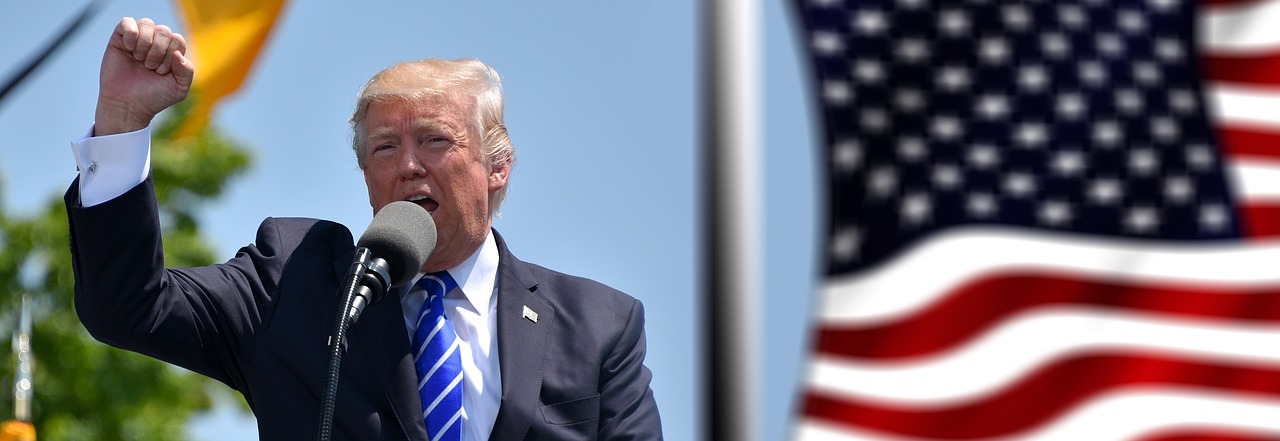What does Trump's return to the White House mean to Europe?

Strong 8k brings an ultra-HD IPTV experience to your living room and your pocket.
With the end of 2024 gaining momentum, Europe is waiting for Donald Trump to return to the White House for a second term. The presidency of Donald Trump rewrote the rules of the game on both sides of the Atlantic and thereby has left an indelible mark on European policymaking and strategic deliberation.
From NATO commitments to trade agreements, the reverberations moved across European capitals, obliging a fundamental reassessment of deeply held assumptions about U.S.-European relations.
The Economic Chessboard
A possible yet another rollercoaster ride in the economic relationship between Europe and the United States will take place. Earlier, the "America First" policy by Trump sent shockwaves through the European markets, from German automotive giants to French wine producers. And who can forget that international trade agreements were like a house of cards standing in a hurricane? Those turbulent times could be back, but this time Europe seems prepared.
In recent years, the continent has been diversifying its trade partners, entrenching internal markets, and developing contingency plans. Business leaders across Europe have equally learned to navigate the unpredictable waters by anchoring resilience in their international strategies and the search for newer opportunities in emerging markets, and increasing focus on forex trading as a tool to hedge against currency fluctuations caused by shifting U.S - EU dynamics.
Trump's Pro-Crypto Shift
Donald Trump has recently adopted a pro-crypto stance, which has significantly impacted the Crypto market.
Trump's policies include creating a national Bitcoin reserve, similar to the Strategic Petroleum Reserve, to secure the nation's financial future. Trump has also promised to maintain the current level of Bitcoin holdings that the U.S. has amassed from seizing assets from financial criminals. This shift in his approach has led to a surge in Bitcoin prices, reaching new highs - today the crypto asset breaks $81,000.
Trump's administration is expected to foster a more crypto-friendly regulatory environment, which could further legitimize digital assets and integrate them with traditional finance. This includes appointing an SEC Chair supportive of crypto and efforts to repeal restrictive regulations.
Defense Dynamics
leaders make critical questions about the future of NATO and European defense strategy. In his first term, his skepticism regarding NATO and demands for more investment in European defense catalyzed serious discussions of European military autonomy.
Today the Europeans stand at a crossroads, further invest in traditional NATO frameworks or accelerate the development of independent European defense capabilities. While France and Germany have already made their moves to more strategic autonomy, for Eastern European countries, security is a concern given their proximity to Russia. The developments have prompted unprecedented cooperation on European defense initiatives, ranging from joint military projects to shared defense technology development.
Environmental Leadership by Europe
Environmental policy is another field in which independent leadership by Europe may become indispensable. Trump's earlier pullout from climate agreements propelled Europe into a more leading global role regarding environmental protection. The European Green Deal, ambitious renewable energy targets, and innovative environmental technologies all display the commitment to climate action on the continent, no matter the path the U.S. takes.
For quite some time now, European leaders have taken note of the fact that environmental leadership provides one not just with the moral high ground in dealing with climate challenges but also offers economic opportunities through green technology development and sustainable industry practices.
Global Power Dynamics
A second Trump presidency would mark a sea change in the balance of global powers and would force Europe to reassess its standing in the world. Meanwhile, European leaders increasingly focus on forging strategic partnerships beyond traditional alliances, cementing closer ties with Asian economies and constructing more shaded approaches to relations with China and Russia.
This strategic pivot represents a break with the paradigms that have shaped Europe since World War II, driven by an increased awareness of the necessity to rely more on itself within a genuinely multipolar world.
The latter part of the diplomatic effort on the continent has stretched to the East, with stronger engagement from emerging powers to establish a more diversified and resilient network of international relationships.
European Unity and Adaptation
As Europe contemplates these various possibilities, unity across their ranks becomes ever more important. The EU countries are aligned variously with, or dependent upon, the United States, and thus offer many potential fault lines in European solidarity.
Yet, often in the past, experience has shown that external challenges make European cooperation stronger and not weaker.
How well the continent can speak with one voice on major international issues, while allowing for internal difference, will be central to how any putative alteration in U.S. leadership is negotiated. The institutions of Europe have shown remarkable flexibility in the development of more sophisticated mechanisms for building consensus and joint action.
Conclusion
The second term for Donald Trump in the White House has Europe bracing for renewed challenges. His previous tenure forced a reevaluation of U.S.-European relations, affecting NATO commitments, trade agreements, and defense strategies.
Trump's "America First" policies disrupted European markets, prompting the continent to diversify trade partners and boost internal resilience.
Europe is now at a crossroads, should it deepen NATO ties or push for independent defense capabilities. The Trump era’s skepticism accelerated discussions on European military autonomy, especially among France and Germany.
In environmental policy, Europe has taken a leading role, particularly after Trump’s withdrawal from climate agreements. Meanwhile, a second Trump term may accelerate Europe's pivot towards new alliances in Asia and beyond. As Europe navigates this uncertain landscape, unity and adaptability remain crucial to maintaining global influence.
Note: IndiBlogHub features both user-submitted and editorial content. We do not verify third-party contributions. Read our Disclaimer and Privacy Policyfor details.







